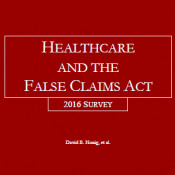Fears Nachawati to Represent Maryland’s Calvert County in Opioid Lawsuit
The Dallas-based law firm Fears Nachawati has been retained by the Calvert County Board of County Commissioners in Maryland to pursue a lawsuit against opioid manufacturers and distributors over their role in the epidemic of addiction to these painkillers, the firm said in a release.
Representing the southern Maryland county is a legal consortium that features Matthew McCarley and Jonathan Novak of Fears Nachawati, along with attorneys from Ferrer, Poirot & Wansbrough in Dallas; Motley Rice in Washington, D.C.; and The Kane Law Group and McNamee, Hosea, Jernigan, Kim Greenan & Lynch in Maryland.
Just southeast of the Washington, D.C., metropolitan area, Calvert County has seen its public resources overburdened by the societal, health and public safety demands created by the reckless proliferation of prescription opioids, plaintiffs say.
“The opioid epidemic has continued at a horrifying pace, taking a tremendous human toll and creating intense financial and social services pressures on local governments such as Calvert County,” said McCarley. “There is no single, simple solution, but recovery cannot begin until those who knowingly created the problem are held responsible for their actions.”
Fears Nachawati currently represents 61 counties, cities and hospital systems in Texas, Florida, Kentucky, Maryland, Mississippi, New Mexico and North Dakota in lawsuits seeking to hold 30 of the nation’s largest pharmaceutical manufacturers and distributors liable for their role in the opioid addiction crisis that resulted from deceptive and illegal marketing schemes.
“While we fight to recover some of the financial costs related to the public health emergency caused by the overuse of prescription opioids, this is also about stopping these illegal and unethical practices,” said Novak.







 The U.S. Department of Justice has filed lawsuits to block the proposed mergers of four of the nation’s five biggest health insurers,
The U.S. Department of Justice has filed lawsuits to block the proposed mergers of four of the nation’s five biggest health insurers,